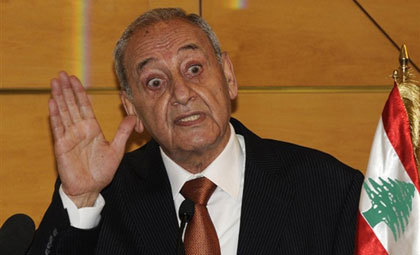 The joint Lebanese parliamentary committees convened on Thursday without reaching any agreement on a new parliamentary electoral law.
The joint Lebanese parliamentary committees convened on Thursday without reaching any agreement on a new parliamentary electoral law.
The committees instead agreed to hold a meeting next Thursday during which they will tackle the hybrid electoral draft-law.
This decision was taken after the rejection by various committees of both the 1960 electoral law and the proportional law.
Deputy Speaker Farid Makari told reporters that the hybrid law will be the center of future discussions because of the lingering differences over the 1960 and proportional representation draft-laws.
Lebanese Forces MP Georges Adwan meanwhile noted that “a return to the 1960 law means the prolongation of the current political crisis.”
“It will mean the return of the so-called national unity government that in reality has nothing to do with unity,” he announced from the parliament building .
“The 1960 law does not allow room for holding officials accountable and therefore corruption will persist.”
“I therefore urge the Lebanese people to exert pressure to adopt a fair electoral law. An electoral law is key to paving the way to achieving reform,” he stressed.
Mustaqbal MP Ahmed Fatfat expressed his bloc’s rejection of the proportional representation draft-law, instead voicing support for the hybrid law.
He noted however that “great progress” has been achieved at the joint parliamentary committees meeting.
Change and Reform bloc MP Alain Aoun disagreed with Fatfat’s assessment, saying that the committee meetings have entered a “period of stalling” until an agreement can be made over the proposal made by Speaker Nabih Berri on Wednesday aimed at ending the political deadlock.
“Those seeking to facilitate the adoption of a new electoral law should not complicate discussions.”
“Should we fail to agree on a new law, then we will head to the polls based on the 1960s law because it is a better option than the extension of parliament’s term.”
Speaker Nabih Berri said on Thursday that the ball is now in the court of the politicians and they can either agree on a new electoral law or settle for the 2008 one, al-Joumhouria daily reported on Thursday.
Visitors to Berri quoted him as saying that agreeing on a new electoral law has become inevitable and he said: “It is crucial that the political powers heed Lebanon’s interest in agreeing on an electoral law that satisfies and represents all parties. They have no excuse to keep the country disabled.”
“The ball is now in the court of the politicians, who are making a big mistake by keeping the situation as it is right now,” added Berri.
Pointing to the short time left before the parliament’s term ends, Berri told al-Akhbar daily: “The parliament still has around four or five months before it agrees on a new law.”
Should the political powers fail to agree on one, then the 1960 law would be used. This law was adopted in the 2009 elections and is based on a winner-take-all system.
Lebanon’s parliament has extended its term twice, once in 2013 and another in 2014, due to officials’ failure to agree on a new electoral law.
Its term ends in June 2017.

Leave a Reply
You must be logged in to post a comment.